This website uses cookies so that we can provide you with the best user experience possible. Cookie information is stored in your browser and performs functions such as recognising you when you return to our website and helping our team to understand which sections of the website you find most interesting and useful.
Friday 30 June 2017, 11:05 | By Chris Cooke
Paul McCartney settles with Sony/ATV in reversion right dispute
Artist News Business News Labels & Publishers Legal Top Stories

Don’t be expecting any courtroom fun in the dispute between Paul McCartney and Sony/ATV over the all important reversion right under American copyright law. They’ve only gone and settled. Bastards. Sensible bastards. But bastards all the same.
As much previously reported, under US copyright law a songwriter who assigns their rights to a music publisher has the statutory right to terminate that assignment agreement after 35 years, or 56 years for copyrights assigned before the reversion or termination right was introduced in the late 1970s. This right only really came into effect in recent years, and everyone is still working out exactly how it works.
One big fat technicality is what happens with non-US songwriters who – say – assigned their rights to a British publisher under English law. Can those writers still reclaim the US rights in their songs? Or, more specifically, can those non-US publishing contracts interfere with the statutory right under American law, or make it impractical to employ? And if so, what specific contract terms are able to do the interfering?
As also previously reported, the test case on all this from an English law perspective is Duran Duran’s legal battle with Gloucester Place Music, which is now a Sony/ATV subsidiary. In that case the publisher argues that, under its original contract with the band, they can’t exercise their termination right. Sony/ATV won at first instance, but the case is still going through the motions with appeal pending.
It was because of Sony/ATV’s battle with Duran Duran that Paul McCartney – who has been busy preparing to reclaim the US rights in his half of the Lennon/McCartney catalogue off the major – filed his own legal action.
The publisher hadn’t actually said that it intended to interfere in his exercising of the termination right, but nor would it confirm that it wouldn’t. It seemed that Sony/ATV was possibly playing for time, pending the outcome of the Duran Duran litigation.
Seeking more timely confirmation that the publisher wouldn’t throw any spanners in the works as he seeks to reclaim his song rights, McCartney went to court in the US earlier this year. Sony/ATV tried to have the case dismissed, arguing that it would be wrong for the American courts to rule on this matter while the English courts were still considering the dispute with Duran Duran.
Copyright geeks were looking forward to seeing this particular reversion rights question get discussed on both sides of the Atlantic, pondering on what might happen if the US and UK courts reached different conclusions. But the McCartney dispute is now settled.
According to The Hollywood Reporter, McCartney’s lawyer Michael Jacobs said in a letter to the court yesterday: “The parties have resolved this matter by entering into a confidential settlement agreement and jointly request that the court enter the enclosed proposed order dismissing the above-referenced action without prejudice”.
Who doesn’t like a good old fashioned ‘confidential settlement agreement’ when an important legal precedent is required that will affect less affluent veteran songwriters as well as the superstars.
Though, that said, whether or not an English publishing contract can indeed interfere in any one songwriter’s US reversion rights may depend on the very specific wording of that contract, so it’s possible we were never going to get an all embracing precedent from any of these lawsuits anyway.
Still, all eyes remain on the Duran Duran case now McCartney has officially stepped down from the fight.
READ MORE ABOUT: Paul McCartney | Sony Music Publishing
Friday 30 June 2017, 11:04 | By Andy Malt
Kylie and Kendal Jenner pull t-shirt range after legal threats from musicians
Artist News Brands & Merch Business News
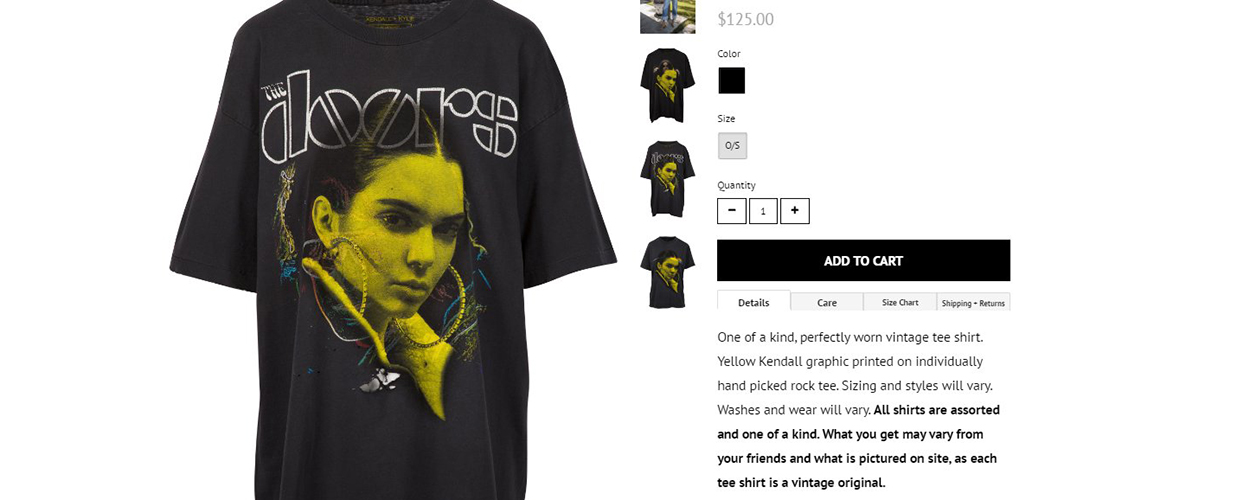
Kylie and Kendal Jenner have been forced to pull a range of t-shirts featuring their own faces superimposed over classic music artwork, after it emerged that they had not licensed the images they were obscuring. The Doors and the estate of Notorious BIG both sent cease-and-desist letters to the sisters.
The two Jenners recently began selling the t-shirts via their own online store for $125 a piece. Among the other acts whose artwork they used were Tupac Shakur, Pink Floyd, Led Zeppelin, Metallica and Ozzy Osbourne.
It’s not really clear what the thinking behind the designs was. Perhaps the idea was that the Jenners are the new guard of fame, pushing aside the old. Or maybe it was a more accurate representation of their fame, aiming to make you think: ‘Why am I looking at them when I could be looking at someone with discernable talent?’
Maybe we will never know, because the t-shirts have now been withdrawn from sale, after the cease-and-desist letters began flooding in.
Having got the lawyers to fire off one such letter, Doors manager Jeff Jampol told Rolling Stone: “This is a case of people who fashion themselves as celebrities, who are famous for being well-known but don’t actually do anything, trying to utilise and steal and capitalise on the legacies of those who actually did do something and created amazing art and messages. It’s ironic, at least, and criminal, at worst, both morally, ethically and artistically”.
Although it’s not clear if Ozzy Osbourne actually went legal, Sharon Osbourne tweeted: “Girls, you haven’t earned the right to put your face with musical icons. Stick to what you know… lip gloss”.
Notorious BIG’s mother Voletta Wallace, meanwhile, wrote in an Instagram post: “I am not sure who told Kylie Jenner and Kendall Jenner that they had the right to do this. The disrespect of these girls to not even reach out to me or anyone connected to the estate baffles me. I have no idea why they feel they can exploit the deaths of 2pac and my son Christopher to sell a t-shirt. This is disrespectful, disgusting, and exploitation at its worst”.
Confirming that the rapper’s estate had joined The Doors in sending a cease-and-desist, lawyer Julian K Petty told TMZ: “This is misappropriation at its finest. I’m curious to hear the justification. I’m even more curious to hear the proposed resolution”.
Not sure how pleased Petty was with the response, but Kendall Jenner issued a statement on Twitter yesterday, saying: “These designs were not well thought out and we deeply apologise to anyone that has been upset and/or offended, especially to the families of the artists. We are huge fans of their music and it was not our intention to disrespect these cultural icons in any way”.
In terms of a resolution, she added: “The t-shirts have been pulled from retail and all images removed. We will use this as an opportunity to learn from these mistakes and again, we are very sorry”.
This is the second recent controversy involving Kendall Jenner that has resulted in something being withdrawn. In April she starred in a soft drink commercial which not only presented Pepsi as the one thing able to unite our divided society, but also appeared to be a straight-faced rip-off of a Chemical Brothers video, though with all the satire removed.
READ MORE ABOUT: Kendall Jenner | Kylie Jenner | Notorious BIG | Ozzy Osbourne | The Doors
Friday 30 June 2017, 10:59 | By Andy Malt
Ukraine faces fine over Eurovision organisation and dispute with Russia
Awards Business News Media

Ukraine’s national broadcaster UA:PBC is facing a fine from the European Broadcasting Union relating to issues surrounding the organisation of this year’s Eurovision Song Contest. Not least Russia’s entrant being barred from entering the country.
As previously reported, Russia threatened to boycott this year’s Eurovision after Ukraine was announced as the 2016 winner and therefore host of the 2017 competition. It looked as if Russia would go through with that threat, but right at the last minute the country entered a song performed by Julia Samoilova.
Ukraine then added Samoilova to its blacklist of artists who have performed in the disputed territory of Crimea since Russia took control of the region. This meant that she would be blocked from entering Ukraine, and arrested if she tried. Attempts to resolve the situation, including offering to allow Samoilova to perform from outside Ukraine via satellite, proved unsuccessful. In the end, Russia simply did not take part, carrying out that boycott after all.
Prior to all this, there had been a number of issues with the organisation of the event, which led to the entire team in charge of putting it together quitting in February. Issues with subcontractors also delayed the building of the stage.
“The EBU was pleased with the 2017 Eurovision Song Contest, and commend UA:PBC, their staff, and all those who worked hard on the three live TV shows broadcast from Kiev in May”, said the EBU in a statement. “The organisation of the competition, however, was subject to severe delays which created unnecessary difficulties for the production”.
“Additionally, the host broadcaster failed to adequately fulfil its obligations with regards to co-operating with the EBU over the participation of the Russian artist”, it went on. “As a result of this, attention was drawn away from the competition and the brand reputation of the Eurovision Song Contest was endangered”.
EBU’s steering committee has therefore “recommended that UA:PBC should receive a substantial fine, in line with the rules of the competition”.
UA:PBC Director Zurab Alasania confirmed to Reuters that it had been ordered to pay a fine of 200,000 euros, but that the broadcaster would appeal the decision. In part because it was not actually involved in any of the decision-making that led to the dispute with Russia. Although he noted that the EBU was unlikely to get its money from anywhere else.
“Formally, it wasn’t us who made the decision not to allow [Samoilova to enter the country], but I don’t think that the SBU [state security force] or the government will want to take part in this”, he admitted.
Ukraine is already in a tricky situation financially with the EBU though. Last week, it announced that fifteen million euros handed over to the Eurovision overseer as insurance for a successful contest had been frozen by authorities in Geneva. The money was due to be handed back after the event, but is being held for reasons unknown.
Alasania told Reuters that UA:PBC had hired lawyers in Switzerland to try to identify why the money was being held, and how to get it released.
Meanwhile, if you were wondering when the vinyl revival would peak, I think that time has come. I present as evidence the Eurovision 2017 vinyl box set.
READ MORE ABOUT: Eurovision Song Contest
Friday 30 June 2017, 10:58 | By Andy Malt
Tony Blackburn to return to Radio 1 for station’s 50th birthday
Business News Media

As it continues to struggle to shift its listener demographic back to the 15-29 bracket, Radio 1 is bringing out the big guns to entice The Kids back to its FM channel. That’s right, Tony Blackburn is returning to the breakfast show.
There are a number of qualifiers to that statement, though. Firstly, it’ll be for one day only. Second, it’s part of the celebrations to mark Radio 1’s 50th anniversary. Third, it’ll highlight a three day pop-up station, Radio 1 Vintage, where most of the other birthday programming will be broadcast, so as not to bother those young people too much.
Radio 1 Vintage will broadcast 50 hour-long best of shows, pulling content from the Radio 1 archive. The aim is to show how important the station has been to music since 1967, just in case you forgot. Among the presenters to have their classic shows compiled and replayed will be Annie Nightingale, John Peel, Mary Anne Hobbs, Tommy Vance, Sara Cox, Tim Westwood, Jo Whiley and Noel Fucking Edmonds.
There’ll also be archive material from classic roadshows, the Live Lounge, the chart show, Newsbeat, all those great comedy shows they used to broadcast in the 90s, and some other stuff.
But what of Blackburn? Well, to kick things off on 30 Sep – 50 years to the day since Radio 1 first launched – he’ll co-present the breakfast show with current host Nick Grimshaw. This will be broadcast simultaneously on Radio 1, Radio 2 and Radio 1 Vintage. So most listeners can spend their morning asking, “who’s that bloke with the annoying voice?” The others can sit around wondering how they even got tuned in to Radio 1 Vintage in the first place.
Also that day, but broadcast only on Radio 1 Vintage and Radio 2, there will be a live recreation of the first ever show on Radio 1, seeing Tony Blackburn reprise his role as Tony Blackburn.
“Launching Radio 1 on 30 Sep 1967 is, undoubtedly, the highlight of my career”, says Blackburn. “Having worked on the great pirate radio ships, Caroline and London, being the first DJ on Radio 1 I saw first hand the impact that the stations had on the British public”.
Of the pre-Radio 1 days, he adds: “It is hard to imagine that there was a time when the BBC would only play 45 minutes of popular music per day and we, as teenagers, had to wait until 7pm in the evening for Radio Luxembourg to come on and play the music we wanted to hear. I owe so much to Radio 1 for my long career, to have been there at the beginning and to still be part of the BBC, it has been amazing to see how it has developed over the years to changes in technology, music, demand and, of course, its ever changing audience”.
His soon-to-be-co-presenter Nick Grimshaw says of the whole 50th birthday celebration: “Radio 1 is the only station I’ve loyally listened to my whole life. From John Peel playing punk on night times and Sara Cox playing Missy on breakfast it was key in forming my musical education. I can’t wait to celebrate 50 years with the legend that is Tony Blackburn!”
In addition to all of this, there are a couple of other things planned.
Live Lounge Month will be back in a special 50th anniversary form. This means the covers acts perform will have to be a hit from the last 50 years, limiting them to just any of the songs they probably would have picked anyway. That’ll run throughout September.
Annie Nightingale will also be presenting four special documentaries looking at the first 50 years of Radio 1, themed around love, heroes, rebellion and dreams.
READ MORE ABOUT: BBC | BBC Radio 1 | BBC Radio 2 | Nick Grimshaw | Tony Blackburn
Friday 30 June 2017, 10:55 | By Chris Cooke
Music 4.5 and CMU Trends put the spotlight on the value of music
Business News Education & Events Labels & Publishers

Rarely a week goes by in the music business news these days without at least one catalogue acquisition, a deal which sees the ownership or control of a set of music rights move from one entity to another.
Often it’s a major player in the music rights business growing its market share by acquiring the catalogue of an independent. But at the same time, in recent years we’ve seen a number of new players start bidding as well, often led by music industry veterans with the backing of a financial institution, usually private equity or a pension fund.
Meanwhile new market places are evolving where smaller rights owners – including individual artists and songwriters – can access investors other than labels and publishers, and raise money by selling a slice of their rights or royalties. But how do investors large and small put a value on music rights?
All of this will be discussed at the next Music 4.5 event called ‘The Value Of Music’, and ahead of that the latest CMU Trends article reviews the music rights market – past, present and future – with insights from EY’s Alan Wallis, SunTrust’s Charles Johnson and music industry consultant Steve Lewis.
The article also puts the spotlight on two of the new music rights market places: Royalty Exchange and LIVAMP.
“Royalty Exchange was set up to be the online marketplace for buying and selling royalties”, the company’s co-founder Gary Young explains. “We’ve worked with songwriters, producers, artists, bands, publishers and record labels. When it comes to what those folks are selling, each auction is a little different. For example, some songwriters will come to us to sell only their public performance royalties from ASCAP. Others will sell their producer royalties paid by a major record label. And some want to sell their entire catalogue and copyrights”.
Meanwhile LIVAMP’s Liz Zavoyskiy says: “We launched LIVAMP’s artist marketplace in late 2015 because we saw a clear gap in the way the creative community financed itself. When the platform first launched, high net worth individuals looking for new, non-traditional investment opportunities were the primary investors. But over time, we’ve begun co-investing in deals and earlier this year joined forces with Magna Entertainment, a large NYC-based investment firm, to commit $100 million to this space over the next couple of years”.
Premium CMU subscribers can read the full CMU Trends article here. The Music 4.5 event ‘The Value Of Music’ takes place next Thursday, 6 Jul, at the London HQ of Lewis Silkin. Info and tickets here.
READ MORE ABOUT: LIVAMP | Music 4.5 | Royalty Exchange
Friday 30 June 2017, 10:53 | By Andy Malt
The National announce Guilty Parties for Guilty Party
Artist News Gigs & Festivals Releases

The National have released a new single from their upcoming new album, ‘Sleep Well Beast’, titled ‘Guilty Party’. They’ve also announced two special shows, also being put on under the name Guilty Party.
The Guilty Parties will take place on 14-15 Jul at the Basilica Hudson in the New York state city of Hudson. The collaborative shows, performed in the round, will see the band joined by Buke & Gase, Nadia Sirota, Mouse On Mars, SŌ Percussion and others. Each of the 700 people who get tickets for the shows will also be given a copy of ‘Guilty Party’ on seven-inch vinyl. Sounds like a right old time.
Are there more opportunities to say ‘Guilty Party’ in this story? Oh yes. Because there’s also a video for the song, you see. What song? ‘Guilty Party’, of course. The director of the ‘Guilty Party’ video, Casey Reas says: “The video is a dream about memory and the degradation of memory; it’s about distance in time and space. Time moves forward, but then backward as memory. The image of the two-faced Roman god Janus, who can look into the past and future, is the core visual language”.
Watch the ‘Guilty Party’ video for ‘Guilty Party’ here:
READ MORE ABOUT: The National
Friday 30 June 2017, 10:51 | By Andy Malt
Vessels announce new album, release Flaming Lips collaboration
Artist News Releases

Vessels have announced that their fourth album, ‘The Great Distraction’, will be out on 29 Sep. The record will feature collaborations with John Grant, Django Django’s Vincent Neff, Sky Larkin’s Harkin, and The Flaming Lips – the latter of whom appear on new single ‘Deflect The Light’.
“Working with The Flaming Lips was a highlight of this whole process”, says the band’s Pete Wright. “There is no facade; Wayne Coyne lives and breathes the very same eccentricity and optimism that pervades The Flaming Lips’ music, and our entire correspondence start to finish has been a torrent of enthusiasm and silliness”.
He added: “They latched on to the spirit of the music we sent and then amplified it a thousand times over, drenching it in their unmistakeable identity but never eclipsing ours. I am so proud of what we made together”.
Listen to ‘Deflect The Light’, featuring The Flaming Lips, here:
READ MORE ABOUT: The Flaming Lips | Vessels
Friday 30 June 2017, 10:47 | By Andy Malt
Paul Thomas Saunders announces tour dates
Artist News Gigs & Festivals Releases

Paul Thomas Saunders is back, everyone. And he’s going to go on tour to prove it.
The announcement of the shows follows the recent release of new single, ‘Holding On For Love’, his first new material since 2014. Of the song, he says: “‘Holding On For Love’ is about moments of stillness in an unforgiving world. It’s about the voices that are left in your head when the instant gratification, endless entertainment and societal pressures are tuned out. It’s about self-preservation in a decaying culture”.
“After a year of trying desperately to ignore the urge to make music, I recorded ‘Holding On For Love’ over two days with one of my oldest friends”, he continues. “I’ve always struggled with the value my role as a musician has to society, to the point where I decided to step away. But this track allowed me to realise music’s inherent worth to me as an individual, and with it a new uninhibited and organic approach to recording”.
Listen to the single here:
And gaze at the tour dates here:
4 Oct: Shrewsbury, Henry Tudor House
5 Oct: Bristol, Lantern
6 Oct: Manchester, Band On The Wall
7 Oct: Liverpool, Buyers Club
8 Oct: Leeds, Brudenell Social Club
10 Oct: Glasgow, CCA
11 Oct: Newcastle, Cluny 2
12 Oct: London, Cecil Sharp House
READ MORE ABOUT: Paul Thomas Saunders
Friday 30 June 2017, 10:42 | By Andy Malt
One Liners: TuneCore, St Vincent, The xx, more
Artist News Business News Gigs & Festivals Labels & Publishers One Liners Releases

Other notable announcements and developments today…
• DIY distributor TuneCore is offering acts free distribution of one single as part of a programme called the Billion Dollar Club, which is all designed to mark the fact that the company is close to having generated $1 billion in revenue for the artists it distributes to download and streaming platforms. TuneCore charges users a set fee per release and then passes on 100% of any subsequent income. Artists can get the free single distribution using the code BILLION.
• Holy shitbeetle, new St Vincent.
• The xx have put out the video for ‘I Dare You’, from their latest album ‘I See You’.
• Mogwai have released new single, ‘Party In The Dark’. It’ll be available in seven-inch vinyl form on 25 Aug.
• Liars have released new track ‘Cred Woes’ from upcoming new album, ‘TFCF’, which is out on 25 Aug.
• Friends vocalist Samantha Urbani has released new solo single, ‘Go Deeper’. She’s going to release an EP later this year.
• Sarah P has released the video for ‘Summer Prince’ from her ‘Who Am I’ album.
• The Beermageddon festival has released a charity single to raise money for the Rock Against Child Pornography And Abuse charity. Listen and download here.
• Marking the 25th anniversary of the first Cream club night, the Creamfields festival will this year rebuild the main room of Nation, the club where it took place, and which closed down in 2015.
• Check out our weekly Spotify playlist of all (or at least most) of the new music covered in CMU Daily over the last week.
READ MORE ABOUT: Beermageddon | Cream | Creamfields | Liars | Mogwai | Samantha Urbani | Sarah P | St Vincent | The xx | TuneCore
Friday 30 June 2017, 10:39 | By Andy Malt
Beef Of The Week #361: Ed Balls v Radiohead
And Finally Artist News Beef Of The Week Gigs & Festivals Media

“Glastonbury gets political”, shouted the headlines, forgetting the festival’s long history of getting political. It was the “wokest Glastonbury ever”, cried others, stressing just how political it had all become. “Even the police have glittered cheekbones”, squealed former politician Ed Balls.
Of course, the actual politician who became the centrepiece of this year’s Glastonbury Festival was Jeremy Corbyn. A man who, if nothing else, has given hope to a significant percentage of young people and now has to try to deliver on all that promise, despite not actually winning the General Election and despite him being much more pro-Brexit than many of his young fanbase.
But those fans are still onside for now it seems. Across the vast Glastonbury Festival site, crowds regularly broke into chants of “Oh, Jeremy Corbyn” to the tune of The White Stripes’ ‘Seven Nation Army’. Not least when Corbyn himself appeared on stage to deliver a little speech and introduce Run The Jewels.
As well as Corbyn, Labour was well represented at the event. Shadow Chancellor John McDonnell also attended – favourite acts: Stormzy and Alison Moyet – as did Deputy Leader of the party Tom Watson, who was back a year after the collapse of the shadow cabinet forced him to leave the festival early. Thankfully this year they delayed that collapse until just after the event.
Tories were lesser spotted on site – perhaps unsurprising at an event that has an entire field devoted to leftwing politics. BBC Two’s ‘The Daily Politics’ did manage to find a nineteen year old Conservative Party member preparing to attend. Although he admitted that he’d be keeping quiet about that once he arrived at the festival. Also, it turned out, like the majority of young people in the recent election, he didn’t actually vote Conservative.
Boris Johnson apparently watched it all on TV, which is possibly as close as we got to a Tory MP ‘doing Glasto’. He subsequently mounted a campaign to change the pronunciation of the festival’s name during a speech attempting to mock Corbyn and co, which, as far as I can see, just further damaged the ‘jolly man’ veil that has long hidden the shitbag inside.
Anyway, we’re not here to talk about current politicians – shitbags or otherwise – we’re talking about Ed Balls – one time Labour leader contender who bowed out of politics after losing his seat in 2015. He’s since made a name for himself as a dancer, of course. And keen to show off his moves, he decided to attend Glastonbury for the first time. Though it’s hard to judge exactly how keen he was to go really, given he had a free ticket provided by the BBC and then reviewed the event for a Guardian article sponsored by camera maker Canon.
Whatever, he got there, and he found exactly the atmosphere described above. “As we survey the scene, with different musical beats surging and mixing and clashing from venues left and right, we hear the first ‘Oh, Jeremy Corbyn’ chant drift up on the wind”, he wrote.
“Countless people – young and old – grabbed me over the course of the weekend to talk about how hopeful they felt about the possibility of change”, he recalled. “Surprisingly, perhaps, Brexit was – in my experience at least – little mentioned. But at Glastonbury, the consensus was that austerity has run its course and Corbyn was definitely the symbol of that sentiment”.
Despite all that hope swimming around Worthy Farm, Balls’ own hope was almost dashed on Friday night, when he discovered he doesn’t actually like Radiohead that much. Which, to be fair, was the conclusion of many at the festival and at home when the first Glastonbury headliners took to the stage.
If social media is any indication of general opinion – and I think we all know that it definitely is – the country was more deeply divided on the first headline set of the weekend than with any of the tedious political votes we’ve been forced into of late.
“One musical aspect the BBC coverage cannot quite capture is the revealing audience reactions to different sets”, decided Balls, apparently having spent Radiohead’s two hour performance moving around the audience to survey the reactions of the tens of thousands also watching. All but “the hardcore fans at the front” hated it, he concluded.
“The atmosphere for Radiohead is funereal”, he said of the notoriously downbeat band’s audience. “The end of each song barely acknowledged by anyone other than the hardcore fans at the front. People around us chat through the songs, openly bored at the dirge-like offerings”.
Balls is clearly not a seasoned gig-goer – people talking through shows is pretty common. No fucker watches anything anymore, except for the two minutes of their favourite song that they film on their phone. So talking isn’t a valid indication of lack of enjoyment, really. Also, people are welcome to leave if they don’t enjoy things. There are always many other things going on at Glastonbury other than the big acts on the Pyramid Stage.
Continuing with his review, Balls said: “For anyone other than hardcore Radiohead fans, the highlight of their Friday set was when the crowd rebuffed Thom Yorke’s disparaging remark about ‘useless politicians’ by repeating the ‘Oh, Jeremy Corbyn’ chant”.
Clearly Ed took that slight a bit personally. And seemingly failed to spot that the crowed erupted into that chant after Yorke said the word “hope”, that the band stopped their set to allow the chant to take hold, that bassist Colin Greenwood grinned and applauded the audience, and that Yorke then joined in with the chant. Albeit quietly and in a weird falsetto. But, hey, when you’re trying to go around and ask that many people what they think of the show, you’re going to miss a few things.
The problem for a band like Radiohead, though, is that people will go to see them at a festival because they’re a big name, only to realise they only actually like two or three singles they heard a couple of decades ago. Those “hardcore fans at the front” – actually a sizeable proportion of the audience from the look of aerial shots – enjoyed it because they were expecting Radiohead to do Radiohead things. Anyone wanting or expecting two hours of ‘Creep’ were always going to be disappointed.
To be fair to the Balls though, a friend of mine who is a big Radiohead fan said it was the worst performance he’s ever seen by them. Though, watching it at home, I thought it was an amazing show. As something of a lapsed Radiohead fan, it brought me back into the fold.
But that got me thinking about something Ed Balls said earlier. “One musical aspect the BBC coverage cannot quite capture is the revealing audience reactions to different sets”. I can see how the casual observer might swing either way, but how could a Radiohead superfan on site hate the performance and me at home think that it was brilliant?
Could it be that the set just worked better on TV, where it was easier to see what was going on up there on the stage? Another observation made by Balls was that “there is a good reason why the large screens sit either side of the stage to help faraway audiences stay engaged; if you fill the feed with fuzzy, blurry, psychedelic pap, then it’s no wonder you lose your audience”.
Hmm, that is a bit odd, isn’t it? Why not show clearly on the screens what’s going on up there. A big part of the Radiohead show is just watching Jonny Greenwood tinker about with various instruments. People shouldn’t be denied the sight of his lustrous hair hanging off his head like he’s being attacked by a creature from a 1980s horror movie.
Maybe Ed is onto something though. Maybe the reason the screens were obscured, and the reason that someone actually watching the show live could hate it while I loved it, was that at least some of the time, we were watching different performances. The BBC was fiddling with the feed. Perhaps the Beeb’s coverage of Glastonbury is the biggest example of the ‘leftwing agenda’ that regular BBC guest Nigel Farage seems so convinced the broadcaster is operating.
Yes, it all makes sense now. Glastonbury is probably full of Tories, all airbrushed out by the BBC. That ‘Daily Politics’ interview was just a red herring. Jeremy Corbyn probably never even appeared at the event, they were simply broadcasting an old speech from that period when no one thought he was worth listening to (anything from before the middle of May), so no one spotted the BBC’s ruse.
The broadcaster probably got some stage school kids to chant Corbyn’s name in a studio back in London and then played the audio over footage of every single performance at the festival in order to make it appear that there was widespread support for their man.
Then Radiohead come on, a band who the BBC wants to present as a high quality group of musicians on the left side of the political world. So when they start performing “dirge-like offerings”, the Beeb cut in footage of other better performances, dipping back in between songs to show footage of the real audience and capture Yorke’s ‘banter’.
But then when Thom Yorke – ever the maverick – starts laying into all “useless politicians”, including the BBC’s man Corbyn, some sneaky live editing is employed to make it look like the frontman is joining in with the pro-Corbyn chants. Though that requires an intern in the satellite van to hastily fill in the vocals, resulting in that weird falsetto.
Finally everything is falling into place. Ed Balls has unwittingly uncovered the greatest conspiracy in British media since Jan Moir discovered the truth about Stephen Gately’s death.
Oh my GOD, maybe Boris Johnson is actually right about pronouncing it ‘Glaaaaaah-stonbury’. It wasn’t the “wokest Glastonbury ever”. Only now are our eyes being truly opened.
READ MORE ABOUT: Ed Balls | Glastonbury Festival | Jeremy Corbyn | Radiohead
Friday 30 June 2017, 09:07 | By Paul Vig
Vigsy’s Club Tip: Fabriclive at Fabric
Club Tip CMU Approved

It’s a drum n bass takeover at Fabric tonight, with Hospital Records and Jungle Jam going head to head, occupying a room each.
In Hospital’s room, heading up the bill is Spy, who will be launching his new EP, ‘Alone In The Dark’, with a two hour set. Also in launch mode are Nu:Logic, marking the release of their new album, ‘Somewhere Between The Light’. They’ll be backed up by Shadow Child, putting in a jungle and hardcore set, LTJ Bukem, DLR and Anile, plus MCs GQ, LowQui and Visionobi.
Jungle Jam, meanwhile, will be vying to get you through the door of their room with a live set from General Levy, plus Benny Page and old school big guns Randall, Kenny Ken and Potential Badboy. Jungle Jam’s resident DJs will also be in, er, residence, along with MCs the Ragga Twins, Fearless and Navigator.
Should be a massive one.
Friday 30 Jun 2017, Fabric, 77a Charterhouse Street, Clerkenwell, London, EC1M 3HN, 11pm-7am, £20. More info here.
READ MORE ABOUT: Hospital Record | Jungle Jam | Spy
Friday 30 June 2017, 07:28 | By Chris Cooke
Trends: Value of music – the story so far
CMU Trends Labels & Publishers Management & Funding

Rarely a week goes by in the music business news these days without at least one catalogue acquisition, a deal which sees the ownership or control of a set of music rights move from one entity to another.
Often it’s a major player in the music rights business growing its market share by acquiring the catalogue of an independent. But at the same time, in recent years we’ve seen a number of new players start bidding as well, often led by music industry veterans with the backing of a financial institution, usually private equity or a pension fund.
Most of the deals involving these kinds of professional investors centre on relatively large catalogues of songs or recordings. But could individual artists and songwriters be doing deals directly with these investors too?
You could argue that label and publishing deals are basically that, the sale of existing and/or future copyrights in return for upfront cash and investment. But could artists be doing deals directly with professional investors rather than music companies? And if so, what would those deals look like?
Would the artist be selling their copyrights outright in perpetuity, or could they just sell the rights to certain revenue streams for a certain period of time – so basically selling rights in their royalties rather than their works? And if so, does that mean artists could be doing deals with investors around royalties they earn from copyrights they previously assigned to a label or publisher?
New market places are now emerging online where artists and songwriters can do just that. Those deals may be different in structure to the big catalogue acquisitions being led by private equity and pension funds, though all these arrangements are seeking to exploit the value of music rights. Which poses one more question: how do you even value a music copyright?
As Music 4.5 puts the spotlight on ‘The Value Of Music’, we spoke to some of the people and companies participating in the event to get an overview of the business of selling rights and royalties – past, present and future.
BUYING CATALOGUES
“It is usually ‘traditional’ label and publishing execs backed by professional investors”, Steve Lewis says, when asked who – other than traditional record labels and music publishers – are bidding for large catalogues of music rights.
In the 2000s, he was that music industry veteran building a catalogue with private equity money through his company Stage Three Music, which he subsequently sold to BMG in 2010. At the time, the new BMG also had a private equity backer funding its many catalogue acquisitions.
To date, Lewis adds, there have mainly been two sets of professional investors backing music right acquisitions. Private equity funds like the one he worked with, “or pension funds, such as ABP who funded Imagem and the Ontario Teachers Pension Plan who fund Ole”. Though, he notes, “some high net worth and ultra high net worth individuals and family offices [who work for such individuals] are now also entering the market”.
Charles Johnson of SunTrust Robinson Humphrey, a bank which provides debt capital to entities acquiring and dealing in music rights, agrees that different kinds of investors may now be interested in buying music catalogues. “We are seeing traditional private equity firms as well as longer term institutional investors and family offices showing an interest”, he notes.
Of course, for these kinds of investors, there is little interest in taking a gamble on the next big thing, it’s all about investing in and earning from songs and recordings that are already generating revenue.
“They are mostly interested in music rights with a proven income history and where the copyrights are available for the long term”, Lewis confirms, though deals can also be done around specific revenue streams as well as full copyright ownership: “Some companies are also buying the writer’s share of publishing – as opposed to the copyrights themselves – and some are buying streaming royalty income only from labels and artists”.
In terms of what return those investors hope to see from the rights or royalties they acquire, well that obviously depends on who is investing, though you’d generally expect private equity funds and pension funds to have different ambitions. “Pension funds usually seek an annual yield”, Lewis says. “In a low interest environment, such as we have now, an 8% yield will look attractive. Whereas private equity funds seek capital growth and aim to sell for two and half times their investment after three to five years”.
But let’s get back to that crucial question. How does a professional investor work out what a set of music rights is worth? Alan Wallis specialises in valuing entertainment content and intellectual property for EY. “Value lies in the future”, he explains. “So go back to basic valuation theory and investigate the asset and how it earns income and establish net present value of those future income streams”.
Lewis concurs: “It’s about analysing historical income and cost of capital, and making a subjective judgment as to whether the rights have a long term future and growth potential – ie can the catalogue be better or more profitably exploited, maybe by eliminating overheads”.
Does the approach to valuing catalogue vary depending on whether you are buying an individual writer or artist’s copyrights versus a whole catalogue of songs or recordings? Wallis: “The approach and basis are the same, but perhaps the perceived risk is different. Simply because of the smaller catalogue size and the probable dependence on a few key compositions. And I am aware that some financial lenders also wrestle with notion of reputational risk with individual artists”.
And what about the buyer? Does valuing catalogues when a traditional label or publisher is buying differ to when it’s a professional investor? “Yes”, Wallis confirms. “Labels and publishers – trade buyers if you like – will have the infrastructure, and can absorb the works they acquire into their existing catalogues, saving costs and overheads. A financial buyer will need that support”.
The music rights industry has evolved a lot over the years of course, and that has had an impact on how music rights are valued. The more obvious change is the shift in revenue streams – from CD to download to streaming. Though the changing nature of label and publishing deals also has an impact.
In publishing, in particular, deals have changed over the years so that writers rarely assign their songs to publishers for life of copyright anymore – indeed modern publishing deals give the publisher control of a writer’s songs for a much shorter time period. And more established writers often grant the publisher administration rights rather than actually assigning the copyright, which might be mere semantics in practical terms, but can also have an impact on what controls the publisher actually enjoys.
All of which is very relevant if you come to acquire that publisher’s assets. “You need to look at cashflows and recognise the period over which the rights are assigned or the terms of admin deal”, Wallis says, agreeing that changes in publishing deal conventions can make the valuing of music catalogues more complex. “This does not mean, necessarily, that there is no value beyond the admin period for instance”, he adds. “But there is a great risk of termination and the loss of that income”.
And what about the shift to streaming? Is that changing the way you value music rights too? “Well, it has certainly created more royalty statements!” Wallis observes. “The owners of catalogues that earn significant digital income will over time build up a great deal of knowledge” he agrees, which in theory should inform the valuation process. “My issue at present is do we really know, especially in publishing, what the move to streaming services and YouTube means for income growth in the longer term?”
Although we have talked about songs and recordings here – publishing and master rights – when it comes to professional investors, it has always seemed that there is more interest in buying into the former rather than the latter. Wallis concurs.
“Traditionally they preferred publishing, that’s right”, he says. “Because there are more sources of income and the copyright is longer. But I’ve been advocating for a decade now that catalogues of masters are worth investigating”.
Johnson at SunTrust agrees. “We have seen private equity firms, institutional investors and family offices all show an interest in acquiring publishing assets, though masters less so. That said, while we have not seen a great deal of interest in labels or masters from these investors to date, we do think that will change as streaming becomes more popular”.
NEW MARKET PLACES
While in the past professional investors were mainly in the business of acquiring whole catalogues of rights – meaning that, with a few exceptions, for individual artists and songwriters only conventional label and publishing deals were on the table – we are now starting to see a marketplace for smaller deals between rights owners and investors, which would include artists and songwriters selling both their rights and royalty streams.
Again, these investors are mainly interested in buying a slice of existing, proven works – so they are not necessarily replacing labels and publishers when it comes to new talent – but for artists and writers with something of a track record there are definitely new opportunities available. And – in the streaming age – that might include more grass roots artists who have built a fanbase organically and who can use streaming data to demonstrate the future financial potential of their output.
Two interesting companies facilitating these kinds of deals are Royalty Exchange and LIVAMP, both of which are presenting at the Music 4.5 event on ‘The Value Of Music’. The former is specifically focused on deals around copyrights and royalties, while on LIVAMP artists may be offering a slice of royalties or other income in return for investment.
To find out more about these two businesses, we spoke to Royalty Exchange co-founder Gary Young and LIVAMP Business Development exec Elizabeth Zavoyskiy.
TALKING TO GARY YOUNG AT ROYALTY EXCHANGE
CC: What was Royalty Exchange set up to do?
GY: Royalty Exchange was set up to be the online marketplace for buying and selling royalties. We’re the place where rightsholders can connect with investors who are interested in buying all or part of their royalties. Royalties are one of the few assets in the world that don’t have a transparent market for buying and selling them. Open, transparent and liquid markets create more value for buyers and sellers and allow people to get a fair deal. That’s our mission.
CC: Who are the rights owners who are selling? What are they selling?
GY: We’ve worked with songwriters, producers, artists, bands, publishers and record labels. So it runs the whole gamut.
When it comes to what those folks are selling, each auction is a little different. For example, some songwriters will come to us to sell only their public performance royalties from ASCAP. Others will sell their producer royalties paid by a major record label. And some want to sell their entire catalogue and copyrights.
In many deals, we’re even more flexible than that: rightsholders can choose to sell a portion of their royalties or even royalties from a single song. Unlike traditional deals, the rightsholders we work with don’t have to commit to an all-or-nothing deal, and they do not need to control their copyrights outright.
CC: Who are the buyers? How do the buyers value the rights they invest in?
GY: The buyers on our site are music fans, private investors and institutional investors. Generally, the buyers look at the music in the catalogue, then they examine the financials and decide the price they’re willing to pay.
Unsurprisingly, they value iconic songs or catalogues with a long track record of consistent royalties the most. When they evaluate each deal, the buyers want to see detailed financial information, a breakdown of the songs in the catalogue, and examples of the works.
CC: Despite the record industry’s high profile problems over the last fifteen years, do you think more people than ever are interested in investing into music rights?
GY: Yes! The investors on our site are interested in music royalties for two main reasons. First, catalogues can provide opportunities for income that isn’t available in the markets today. And second, music catalogues are uncorrelated assets, which means that the investment performance isn’t tied to the broad stock market and real estate market. Plus, collecting royalties from a great song is much more interesting than other income producing assets.
CC: Are the kinds of investors using your service only really interested in buying into proven rights – ie they are not replacing labels and publishers when it comes to brand new talent?
GY: Yes. They are only interested in buying into proven rights. They don’t plan on replacing labels or publishers when it comes to developing new talent. Labels and publishers are very good at that.
CC: Though, if artist can organically grow their businesses online, do you think market places like yours could become an alternative option to labels and publishers for new artists?
GY: Absolutely. We’re already starting to see it. Some of the rightsholders we work with come to us because they want to finance their next project independently and don’t want to sign a record deal or publishing deal. We expect this trend will continue.
TALKING TO LIZ ZAVOYSKIY AT LIVAMP
CC: What was LIVAMP set up to do?
LZ: We launched LIVAMP’s artist marketplace in late 2015 because we saw a clear gap in the way the creative community financed itself. We built out a marketplace connecting investors with musicians, and gave that community the tools to understand music rights and make the industry less of a black box than it’s traditionally been seen as.
CC: Who is investing?
LZ: When the platform first launched, high net worth individuals looking for new, non-traditional investment opportunities were the primary investors. Over time, we’ve begun co-investing in deals and earlier this year joined forces with Magna Entertainment, a large NYC-based investment firm, to commit $100m to this space over the next couple of years.
CC: How do investors value the artists they are supporting? What data do you provide to help them make investment decisions?
LZ: Investors, including ourselves, generally take a more analytical approach to investing. Our job is to make the music industry more tangible than it’s even been before to investors. We look at past history of traction and revenue, the team involved with the artist and any future near-term milestones that are contracted, ie touring, branded deals, sync placements, etc. To aid investors in their decision, we provide data on past revenue earnings, social growth, the team in place and any other markers that move the needle.
CC: Does streaming data make it easier to assess the potential value of investments of this kind?
LZ: Definitely, streaming data provides us with an understanding of an artist’s fanbase, traction for how singles and albums are performing, territories where the artist is most popular, and essentially an arsenal of key points for valuing an investment in the potential future upside of an artist’s career.
CC: How does your approach compare to crowd-sourcing platforms like PledgeMusic and Kickstarter?
LZ: I wouldn’t say that our approach is comparable to crowd-sourcing platforms like PledgeMusic and Kickstarter. PledgeMusic is effectively a merchandising and direct-to-fan platform for artists – Magna is also an investor in Pledge. Kickstarter differentiates in that it’s crowdfunding for more artistic projects and is less commercial than the investment deals we’re interested in. All three can certainly co-exist depending on what stage of development an artist is in. For example, some of the artists we work with use PledgeMusic as a revenue driver to create more value for investors.
CC: Do you see artists raising money this way as an alternative to a traditional label or publishing deal?
LZ: We see our method of investing as a complement rather than an alternative to traditional label/publishing deals. Labels provide one of things we look for when investing, and that’s making sure there’s an experienced team providing the resources and time to ensure the growth of an artist’s career as well as our investment. Our preference, as well as the preference of people who have invested through the platform, has actually always been to partner with labels and invest in their rosters across the board.
READ MORE ABOUT: EY | LIVAMP | Music 4.5 | Royalty Exchange | SunTrust Robinson Humphrey
Thursday 29 June 2017, 09:31 | By Chris Cooke
Music industry welcomes landmark ruling in Google delisting case
Business News Digital Labels & Publishers Legal Top Stories

The music industry has welcomed a landmark ruling in the Canadian Supreme Court in which Google has been ordered to delist an entire website globally on the grounds of intellectual property infringement.
Although not a music case, the judgement arguably sets an important precedent related to one of the music industry’s top piracy gripes: the fact that Google routinely links through to copyright infringing content and won’t delist entire websites from its search database on copyright grounds.
The case began as a dispute between two technology companies, Equustek Solutions and Datalink Technologies Gateways. The latter was accused of repackaging one of the former’s products as its own, and then of nicking confidential files from Equustek and using the information contained within to produce and sell a competing product.
Equustek went legal in British Columbia and secured an injunction in 2011 which ordered Datalink to return all the confidential files it had acquired, to stop selling Equustek products, and to direct anyone seeking Equustek products to that company’s own website.
Datalink failed to comply with all the obligations in the injunction, and instead moved its operations out of British Columbia to a location unknown and stopped returning the court’s phone calls. Needless to say, it continued to sell the IP infringing products. In 2012, Datalink and its director Morgan Jack were held to be in contempt of court and an arrest warrant was issued against the latter. Though the authorities are yet to find him.
With Datalink no longer even attempting to defend itself, but continuing to sell products that infringed Equustek’s IP, the latter company turned to Google and asked that the web giant delist it’s dodgy rival’s website from its search engine. Google advised Equustek to get an injunction ordering its nemesis to stop trading online, and said it would then delist specific web pages where Datalink continued to trade from its Canadian search engine.
That injunction was secured and Google did start removing individual web pages where Datalink was in breach of the court order. However, somewhat unsurprisingly, Datalink just started monitoring what pages had been delisted by Google, and would then set up new pages selling its IP-infringing products elsewhere within its website.
Mightily pissed off by this point, Equustek went back to court seeking a new injunction ordering Google to entirely delist any website run by Datalink on a global basis.
Google opposed that application, arguing that it was not a party in the core dispute between Equustek and Datalink; that the site-wide delisting would be ineffective; and that a global delisting was unnecessary. And then it threw in some free speech concerns for good measure.
The matter ultimately reached Canada’s Supreme Court, which yesterday ruled in Equustek’s favour, ordering Google to fully delist Datalink’s websites on a worldwide basis.
The top court noted just how important Google was in helping consumers find Datalink; the fact that delisting individual webpages just resulted in an endless game of whack-a-mole whereby Equustek was having to constantly request further pages be removed; and that the order had to be global because, while Canadian web-users are taken to google.ca by default, it’s easy for them to access other Google sites around the world.
Judges then added that if the injunction required Google to breach specific laws in other jurisdictions, including free speech laws, then it should tell the courts in British Columbia which could amend the injunction. To date Google hasn’t identified any such foreign laws the injunction forces it to breach.
The fact this case orders site-wide delisting from Google search on a global basis – and knocks back the web giant’s various arguments against such a thing – is key for the music industry.
Record companies and music publishers have long complained that, while Google will remove specific web pages containing copyright infringing material – in line with its obligations under safe harbour rules – that is of nominal benefit, because piracy sites are constantly posting new pages and links. Therefore rights owners are obliged to constantly submit a flood of takedown notices.
The music industry has been calling for a ‘takedown and stay down’ system for years, so that once one bit of infringing content has been delisted from Google search, any other page or link carrying the same content would be automatically blocked. Which, of course, is what Google has tried to do on its YouTube site via Content ID.
Meanwhile, music rights owners would like Google to entirely delist infamous piracy hubs like The Pirate Bay, which ignore court orders and like to jurisdiction hop, so that any and every page on those websites would be removed from the Google’s search databases.
Labels and publishers reckon there is a particularly good argument for such site-wide delisting where a piracy site has been subject to a web-blocking injunction, and therefore deemed to be an infringer by a court of law. Such as The Pirate Bay in the UK.
To that end, the music industry backed Equustek in its case against Google, and widely welcomed yesterday’s Supreme Court judgement.
Local record industry trade group Music Canada said in a statement: “This case establishes principles that will guide the responsibilities of internet intermediaries to reduce or eliminate harms amplified by their activities. It rejected Google’s approach of only delisting individual pages within sites, which a lower court described as promoting a ‘whack-a-mole’ approach to online infringement”.
On the global reach of the injunction, the trade group went on: “Today’s decision also ensured that the order applies worldwide and across all of Google’s search engines, a crucial development given that the internet has largely dissolved boundaries between countries and allowed virtual wrongdoers to move from jurisdiction to jurisdiction in search of the weakest enforcement setting”.
And finally, on Google’s common playing of the free speech card, Music Canada said: “The Supreme Court concluded that freedom of expression concerns raised by Google and its supportive interveners were at best theoretical. The speech contained on the sites did not engage any freedom of expression values, but rather violated multiple court orders. The Supreme Court found that ‘most countries will likely recognise … the selling of pirated products as a legal wrong’ and that freedom of expression does not require Google to engage in ‘the facilitation of the unlawful sale of goods'”.
Music Canada CEO Graham Henderson added: “Today’s decision confirms that online service providers cannot turn a blind eye to illegal activity that they facilitate; on the contrary, they have an affirmative duty to take steps to prevent the internet from becoming a black market. This is welcome news for creators of all stripes who rely on the internet as their primary market and for whom illegal online activity can instantly wipe out careers and destroy investment in new releases. Today’s decision provides a vital remedy to address illegal online activities and enforce the rights of creators”.
Bosses at the global music industry trade groups also lined up to welcome the ruling, and for all you fans of quotes, here are all those responses…
Frances Moore of the International Federation Of The Phonographic Industry: “Canada’s highest court has handed down a decision that is very good news for rights holders both in Canada and around the world. Whilst this was not a music piracy case, search engines play a prominent role in directing users to illegal content online including illegal music sites. If the digital economy is to grow to its full potential, online intermediaries, including search engines, must play their part by ensuring that their services are not used to facilitate the infringement of intellectual property rights”.
Alison Wenham of the Worldwide Independent Network: “This decision represents an important step towards a fair internet for consumers and rights owners. Common sense has finally prevailed”.
Coco Carmona of the International Confederation Of Music Publishers: “Creators and rights holders are completely dependent on the effective enforcement of intellectual property rights. Search engines, as gatekeepers of the internet, should play a key role in ensuring that intellectual property right infringements do not occur and this decision from the Canadian Supreme Court recognises this role. ICMP therefore welcomes this ruling and hopes it will help curb online infringement and ultimately help to protect the livelihoods of composers, songwriters, artists and their business partners, in Canada and across the world”.
Gadi Oron of global song-rights collecting society organisation CISAC: “This is an important decision for the creative industries, copyright holders and the digital economy. It serves as a strong reminder that the success of creators in the digital world depends on the responsibility of online intermediaries to deter unlicensed use of creative works. Search engines are the gateway to the online market and as such, should help prevent access to infringing content”.
READ MORE ABOUT: Datalink Technologies Gateways | Equustek Solutions | Google
Thursday 29 June 2017, 09:28 | By Andy Malt
Universal renews request to cancel Prince recordings deal
Business News Labels & Publishers Legal
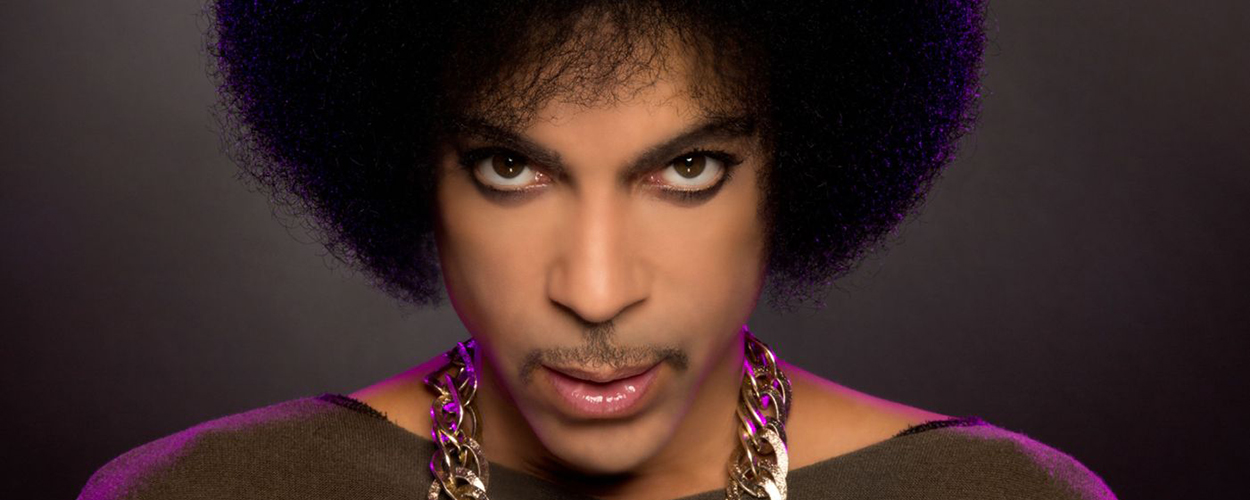
Having now seen the deal made between Prince and Warner Music before his death, Universal Music has renewed its request to have its more recent deal with the Prince estate over the late musician’s recordings catalogue rescinded. And the major label has stressed that if the judge overseeing the case doesn’t hurry up, it’ll be forced to launch a full scale legal challenge.
As previously reported, Universal Music did three deals with the Prince estate to represent the musician’s song rights, merch rights and recording rights. However, Warner Music seemingly then came forward and said that the latter of those deals conflicted with its earlier agreement signed when the star was still alive.
Earlier this month, Universal was allowed to see, for the first time, the deal Prince signed with Warner. Having had a good read of it, Universal’s lawyers remain convinced that the mega-major’s $30 million+ deal should now be cancelled. Though not because the two deals definitely conflict. Rather, they can’t make head nor tail of the Warner contract or the rights it may or may not provide the mini-major.
In a new legal filing this week, Universal’s lawyers said that the language of the Warner deal was too ambiguous for them to work out if there was any conflict or not.
In a letter to the judge overseeing the case, the lawyers said that the only certainty in all this now was that Universal definitely wanted out of its Prince recordings deal. This is the best course of action for everyone, they said, because “it resolves this otherwise intractable dispute without the expense of lengthy litigation that will tie up these key rights for years”.
That message – aka threat – is likely targeted in part at those Prince heirs who are contesting Universal’s request to rescind their recordings deal.
Although the bank now administrating the Prince estate, Comercia – which was not involved in any of the negotiations with Universal – has recommended to the court overseeing the late musician’s affairs that the agreement be rescinded, some of Prince’s heirs disagree. They being the heirs advised by L Londell McMillan, who negotiated the Universal deals on behalf of the estate in the first place.
It remains to see if the possibility of a lengthy legal battle convinces them, or more importantly the judge, that Universal should just get its $30 million or so back right now. The estate would then have to find a new partner to work with on Prince’s recordings. By the sound of it, it would be easiest to give it all to Warner, so that no one ever has to really work out what that 2014 deal said. Though that would likely allow Warner to secure an arrangement with a lower financial commitment.
READ MORE ABOUT: Prince | Universal Music | Warner Music
Thursday 29 June 2017, 09:27 | By Andy Malt
Smirnoff announces fund to improve gender diversity in electronic music
Brands & Merch Business News
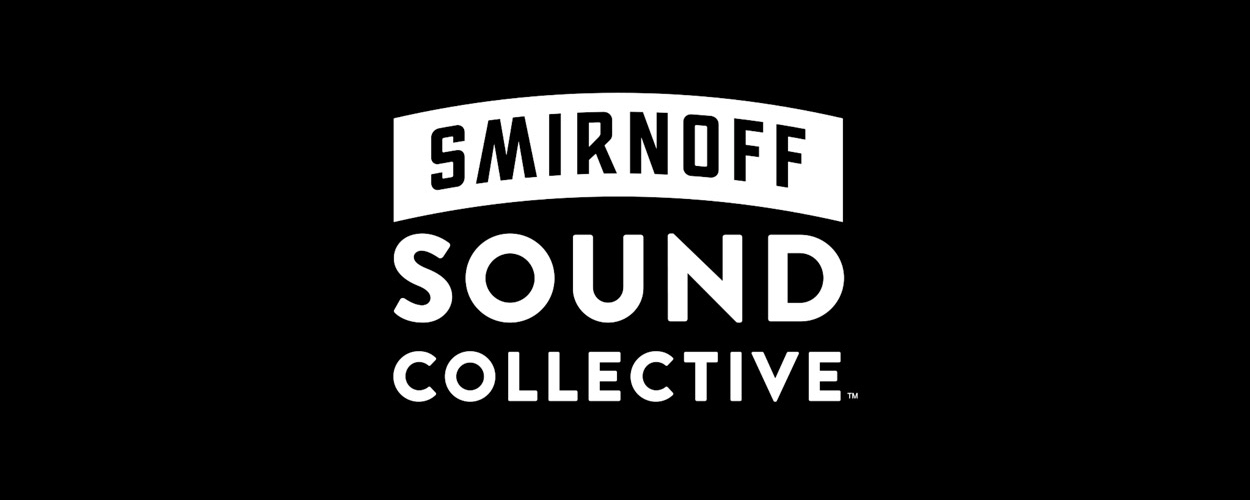
Smirnoff has announced that it is setting up a fund to tackle gender diversity issues in dance music. This follows a round table discussion hosted by the brand at this year’s International Music Summit in Ibiza organised in association with the Shesaid.so music industry network for women.
“At and with International Music Summit we were keen to get to the bottom of this deep-rooted disparity issue and develop a long term and ongoing plan to help balance the ratio”, says Leila Fataar, Head Of Culture & Entertainment at Smirnoff parent company Diageo. “By connecting our Smirnoff Sound Collective platform with the IMS we have brought together some of the most forward-thinking people in the industry with a clear objective: finding solutions to gender disparity in electronic music”.
She continued: “From on-going conversations with key people from the industry, it is clear that there is not a one fix-all solution. Instead a variety important steps need to be taken – from grassroots to executive level, from single people to corporate companies, it will take the industry as a whole to sort this. We, as Smirnoff, are open to and will support breaking ideas and initiatives from DJs, companies, media, labels, individual players, managers, bookers and many other people involved in the scene to shape a plan together”.
Further details, including the announcement of a committee to oversee the fund, are due next month.
READ MORE ABOUT: International Music Summit (IMS) | Smirnoff
Thursday 29 June 2017, 09:24 | By Andy Malt
Queen release VR concert film
Artist News Digital Releases

Queen and Adam Lambert have announced the release of a new virtual reality concert film, ‘VR The Champions’. Because you can’t think up a title like that and then do nothing with it.
Premiered at last year’s Tribecca Film Festival, the film was shot in Barcelona in May 2016. It’s compatible with various VR systems, including Queen guitarist Brian May’s own low-tech OWL VR kit.
Say May: “This is the fulfilment of a dream. Through this unique virtual reality creation, fans around the world will for the first time be able to experience the excitement and energy of a Queen show in their own homes. Many of you have seen VR, but not VR like THIS!”
See a bit of VR like THIS here.
READ MORE ABOUT: Adam Lambert | Queen
Thursday 29 June 2017, 09:22 | By Andy Malt
The Horrors announce new album and tour dates
Artist News Gigs & Festivals Releases

The Horrors have announced that they will release their fifth album, titled ‘V’, on 22 Sep.
The album, which was produced by Paul Epworth, sees the outfit shift their sound once again, which is “a risk”, says the band’s Faris Badwan. “But life isn’t much fun without risk. It’s the antithesis of being creative if you know what you’re going to be doing every time”.
Keyboardist Tom Cowan continues: “It’s natural, if you do see yourself as an artist, to progress and not play it safe. Bowie pre-empted the modern condition of not being able to stay in one place for very long, and I get frustrated with bands who stay still. Because then it does become a career”.
And bassist Rhys Webb adds: “When we started we had a very clear idea of what we wanted to do, which was to make as furious a noise as possible, a fast and violent racket. But even though we started with this punky garage sound there was always this real spirit of wanting to experiment and explore”.
Alright lads, no need to justify yourselves quite so much. I’m sure it’ll be fine. Anyway, they’ll be touring too. Here are the dates:
11 Jul: London, Omeara
14 Jul: Southwold, Henam Park
16 Oct: Belfast, Mandella Hall
17 Oct: Dublin, Tivoli
19 Oct: Glasgow, QMU
20 Oct: Newcastle University
21 Oct: Leeds, Beckett University
22 Oct: Liverpool, Academy 1
24 Oct: Birmingham, Institute
25 Oct: Bristol, Bierkeller
26 Oct: Cambridge, The Junction
28 Oct: Brighton, Acca
29 Oct: London, Koko
READ MORE ABOUT: The Horrors
Thursday 29 June 2017, 09:18 | By Andy Malt
Foo Fighters to play show for O2 Arena’s tenth birthday
Artist News Gigs & Festivals

The Foo Fighters have announced that they will play a one-off show at the O2 Arena in London on 19 Sep to mark the tenth birthday of the venue. It just so happens that their new album is out on 15 Sep too.
“We’re coming back to the O2 Arena on 19 Sep to play their tenth birthday”, said Dave Grohl in a video announcing the show, clearly not realising that I’d already told you all that. “We can’t wait to see everyone there. So take care and take a nap”.
“Try not to shit the bed”, added drummer Taylor Hawkins, referencing something I cut out of the band’s initial comments about the show when typing them up. Probably shouldn’t have put this bit in then. Doesn’t really make sense now, does it? Shame there’s nothing I can do about that at this point.
Anyway, you can watch that whole statement, bed-shitting and all, right here.
READ MORE ABOUT: Foo Fighters
Thursday 29 June 2017, 09:17 | By Andy Malt
Ed Sheeran announces 2018 tour dates
Artist News Gigs & Festivals

Having come to the attention of millions thanks to the BBC taking a bold chance on him and his warblings and broadcasting that Glastonbury set, Ed Sheeran has announced a tour. What an opportunist. And once again, he’ll be making sure he keeps as much money for himself as possible by lugging around an effects pedal instead of paying a band. Opportunist and cheapskate.
The shows aren’t actually until next summer, but if he doesn’t capitalise on the Glastonbury attention right now people might have forgotten about him by then. Tickets don’t go on sale until 8 Jul though. Bloody hell, Ed. This is a shambles.
One thing that is good though, Sheeran has announced that the resale of tickets will be allowed at face value through Twickets, but that those resold at hiked up prices through other platforms will be voided, where possible. And anyone holding a voided ticket will then be hit on the head with Sheeran’s guitar.
In a bid to enforce the tout ban, entry to the shows will require various forms of ID, including the credit card with which the tickets were purchased. Which sounds like hard work. I mean, all that admin could prove problematic. Though I don’t remember anyone ever accusing Sheeran’s organisation of being a shambles, so it’ll all be fine, I’m sure.
Look, here are the dates:
9 May: Belfast, Boucher Playing Fields
24 May: Manchester, Etihad Stadium
1 Jun: Glasgow, Hampden Park
8 Jun: Newcastle, St James’ Park
15 Jun: London, Wembley Stadium
16 Jun: London, Wembley Stadium
22 Jun: Cardiff, Principality Stadium
READ MORE ABOUT: Ed Sheeran
Thursday 29 June 2017, 09:15 | By Andy Malt
Sacred Paws win Scottish Album Of The Year Award
Artist News Awards

The winner of this year’s Scottish Album Of The Year Award has been announced. And the winner is… Sacred Paws’ debut album ‘Strike A Match’.
The CMU approved duo, made up of former Golden Grrrls members Rachel Aggs and Eilidh Rodgers, recorded the album making trips between their homes in London and Glasgow. Following an EP and single release, ‘Strike A Match’ was released in January this year.
Accepting the award last night, Aggs said: “I just want to say thank you so much, thanks to the SAY Award, thanks to the judges, thanks to everyone at [Sacred Paws’ record label] Rock Action and I can’t believe it! I’m trying really hard not to swear!”
She went on: “We are not always the most confident people and I think playing music has a lot to do with confidence, so this is completely overwhelming and we don’t feel like we belong here, but at the same time we feel validated for what we do. Thank you”.
As well as a fancy trophy, the duo also take home prize money of £20,000.
READ MORE ABOUT: Sacred Paws | Scottish Album Of The Year Award
Thursday 29 June 2017, 09:13 | By Chris Cooke
One Liners: The Killers, EMA, UK Music Video Awards, more
Artist News Awards Business News Education & Events Gigs & Festivals Labels & Publishers One Liners Releases

Other notable announcements and developments today…
• EuropaCorp, the film company founded by French director Luc Besson, recently sold its library of music rights featuring over 1500 compositions used in the firm’s movies to good old Sony/ATV in a deal worth €14.5 million, with a possible subsequent performance-related €2 million boost.
• Former Universal Music Publishing exec David Renzer, who became Chairman of US-based indie music publisher Spirit Music in 2014, is now also CEO of that company. New business cards all round I say.
• The fifth edition of the BIME conference will take place in Bilbao from 25-28 Oct. Music, tech and gaming will be in the spotlight as usual, with Armonia, Believe, Boiler Room, Muki-International and Tiger Heart among the companies already represented in the list of speakers.
• The Killers have released the video for new single, ‘The Man’.
• Wiki, formerly of Ratking, has released a new track, ‘Pretty Bull’.
• EMA has released new single ‘Down And Out’.
• Girl Ray have released new single ‘Don’t Go Back At Ten’.
• All We Are have completed their video trilogy, with new single ‘Dance’.
• Howling Bells vocalist Juanita Stein has announced that she will be touring the UK later this year. Her debut solo album, ‘America’, is out on 28 Jul. Here’s first single ‘I’ll Cry’.
• The UK Music Video Awards 2017 will take place at The Roundhouse in London on 26 Oct, the tenth edition of the music video championing event. Organisers are now accepting entries via www.ukmva.com.
• Music Business Worldwide’s A&R Awards will return for a second edition on 1 Nov at the Sheraton Grand Park Lane Hotel in London. Adult Contemporary is being added to the list of genre-specific prizes presented.
READ MORE ABOUT: All We Are | BIME | David Renzer | EMA | EuropaCorp | Girl Ray | Howling Bells | Juanita Stein | Music Business Worldwide | Sony Music Publishing | Spirit Music | The Killers | UK Music Video Awards | Wiki
Thursday 29 June 2017, 09:03 | By Andy Malt
Adele: “I don’t know if I’ll ever tour again”
And Finally Artist News Gigs & Festivals

Musicians are always saying that they might have just made their last record or gone on their last tour. Usually, they just mean they haven’t made any future plans yet. However, it does seem like Adele might mean it when she says she’s done with touring.
As she prepared for the first of four nights at Wembley Stadium, which will serve as the finale of her tour in support of latest album ’25’, she posted a message on Instagram saying that this may really be the last time.
“So this is it”, she began. “After fifteen months on the road and eighteen months of ’25’ we are at the end. We have taken this tour across UK and Ireland, throughout Europe, all over America and I finally got to go to Australia and New Zealand too”.
“Touring is a peculiar thing”, she continued, “It doesn’t suit me particularly well. I’m a real homebody and I get so much joy in the small things. Plus I’m dramatic and have a terrible history of touring. Until now that is! I’ve done 119 shows and these last four will take me up to 123. It has been hard but an absolute thrill and pleasure to have done [it]. I only ever did this tour for you and to hopefully have an impact on you the way that some of my favourite artists have had on me live”.
Finally, she wrote: “I wanted my final shows to be in London because I don’t know if I’ll ever tour again and so I want my last time to be at home. Thank you for coming, for all of your ridiculous love and kindness. I will remember all of this for the rest of my life. Love you. Goodnight for now”.
Don’t worry though, I’m sure it won’t be long before the allure of being carted around in a box pulls her back in.
READ MORE ABOUT: Adele
Thursday 29 June 2017, 08:08 | By Andy Malt
Approved: Ayla
CMU Approved

Singer-songwriter Ayla has just released the video for her latest single ‘Shallow End’. Her first release of 2017, it’s also her strongest to date and puts her in a better position than ever to find a big audience.
Clipped drums and laidback guitar lay down the initial base for her poised vocals, leading into a big chorus in which she offers the great imagery of waiting “in the shallow end of the conversation”.
She only has a handful of songs out in the world right now, but following on from last year’s ‘Not Like The Other Kids’, her trajectory is becoming ever clearer.
Watch the video for ‘Shallow End’ here:
Stay up to date with all of the artists featured in the CMU Approved column by subscribing to our Spotify playlist.
READ MORE ABOUT: Ayla
Wednesday 28 June 2017, 10:19 | By Andy Malt
Tim Westergren steps down as Pandora CEO
Business News Digital Top Stories

Pandora CEO Tim Westergren yesterday confirmed rumours that he was about to step down from the top role at the US streaming company. By stepping down. He is also resigning his board position at the digital music firm.
Westergren’s departure is part of a not insignificant executive overhaul at Pandora, following the news earlier this month that Sirius XM had bought nearly a fifth of the business. As well as Westergren, President Mike Herring and Chief Marketing Officer Nick Bartle are also leaving the company.
Stepping in to Westergren’s role as CEO will be CFO Naveen Chopra – who joined Pandora in February this year – but only on an interim basis while a full-time replacement is found. Meanwhile in the boardroom, former Myspace and MTV exec Jason Hirschhorn is taking a seat around the table.
Westergren co-founded Pandora in 2000, and over the years held various executive positions at the firm including that of CEO. He returned to the CEO position last year following the departure of Brian McAndrew. That development was not welcomed by all of Pandora’s shareholders at the time, some of whom questioned his strategy for taking the company into profit, and his willingness to seek a new buyer, a move some investors were promoting.
“I am incredibly proud of the company we have built”, said Westergren in a statement yesterday. “We invented a whole new way of enjoying and discovering music and in doing so, forever changed the listening experience for millions. I came back to the CEO role last year to drive transformation across the business. We accomplished far more than we anticipated”.
He continued: “We rebuilt Pandora’s relationships with the music industry; launched a fantastic premium on-demand service, and brought a host of tech innovations to our advertising business. With these in place, plus a strengthened balance sheet, I believe Pandora is perfectly poised for its next chapter”.
Since launching a strategic review, Pandora has sold a 19% stake in the company to SiriusXM and also sold off its ticketing company, Ticketfly. With almost $700 million in the bank as a result of those deals, Pandora has bought more time for itself, but shareholders are obviously keen to see the loss-making business finally become properly profitable.
Commenting on the executive changes, former EMI boss Roger Faxon, who sits on the Pandora board, said: “Over the past several weeks, the board has taken a number of steps to refocus and reinforce Pandora. As listeners continue to move from traditional terrestrial radio to more dynamic and flexible offerings, it is the board’s belief that this transition continues to present a massive opportunity, and that Pandora is in an ideal position to capture an increasing share of this audience”.
Also noting the recent expansion of Pandora’s premium services, alongside its core ad-funded personalised radio set-up, he went on: “With ‘digital radio’ at the core of our business, and both ‘Plus’ and ‘Premium’ as new, integral parts of our arsenal, Pandora now has all of the tools necessary to capitalise on this opportunity. With our comprehensive suite of offerings and a refortified balance sheet, we will be able to more effectively recruit listeners, and we will be able to provide them with more of the content they want and the services they desire in order to better retain them”.
Presumably Faxon et al, and the shareholders they represent, hope that a new management team can take all these lovely opportunities and the big pile of cash created by the Sirius and Ticketfly deals, and get on with building that nice profitable business on the back of it all. Yeah, good luck with that everybody!
READ MORE ABOUT: Pandora | Tim Westergren
Wednesday 28 June 2017, 10:16 | By Chris Cooke
Lawyers investigating possible class actions against Guvera
Business News Digital Legal
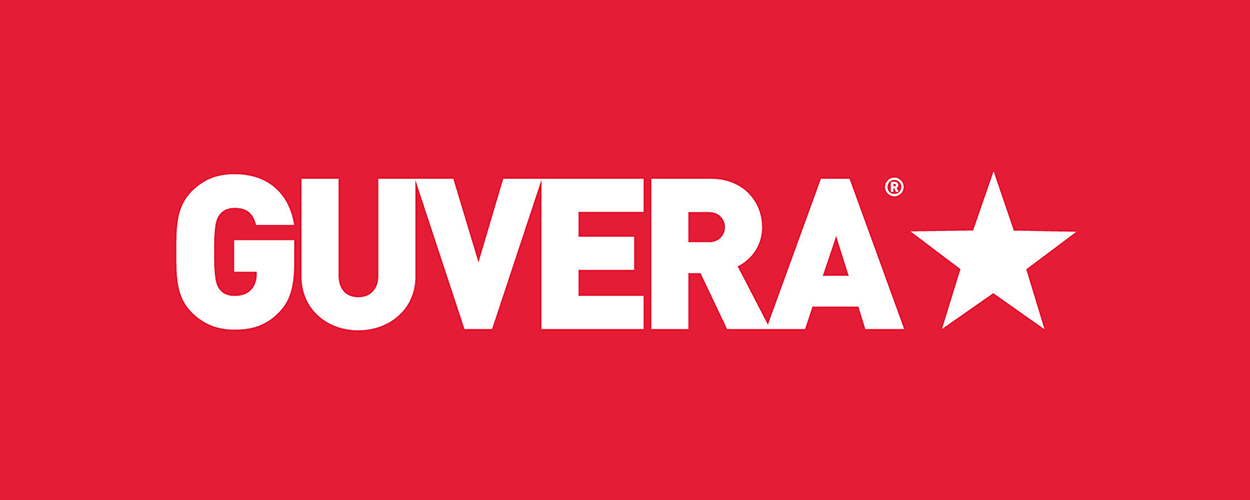
Lawyers in Australia are considering filing class actions against Guvera and possibly the private equity outfit that raised money for the failed streaming music firm, according to Brisbane newspaper The Courier-Mail.
This follows those reports that the Australian Securities And Investments Commission is investigating whether Amma Private Equity offered kickbacks to accountants who recommended to their clients that they invest in Guvera, and whether the streaming firm breached sections of the country’s Corporations Act, which are specifically designed to protect inexperienced investors, in the way they marketed their investment opportunities.
Darren Herft, who is the link between both Guvera and Amma, insists that everything was above board. He is quoted by the newspaper as saying “we have followed the Corporations Act and had legal advice to support [our actions] at all times”. Herft denied that the ASIC was formally investigating his companies’ fundraising activities, while adding that Guvera had audited accounts that showed how the $180 million the firm raised was spent.
Though a spokesperson for the ASIC confirmed to The Courier-Mail that it was taking a “close and active interest in the fundraising associated with Guvera and related matters”, while the paper says that is understands a number of Australian law firms are now doing preliminary work to assess the potential for class-actions involving people who invested in the streaming business via Amma.
It remains to be seen if any legal action now follows. Guvera, of course, has been sued by former employees in the UK following the company’s brief adventure in the British market via its acquisition of Blinkbox. Meanwhile Herft is still trying to see if there is anything he can do with the intellectual property the company built up before finally ceasing its operations last month.
READ MORE ABOUT: Guvera
Wednesday 28 June 2017, 10:14 | By Chris Cooke
Cox Communications reckons Supreme Court ruling on social media rights impacts on its BMG copyright case
Business News Digital Labels & Publishers Legal

US internet service provider Cox Communications has submitted new paperwork in its appeal against the landmark ruling in 2015 when it was held liable for the copyright infringement of its customers for failing to properly deal with repeat infringers.
As previously reported, the legal battle between music firm BMG and Cox was an important test of the safe harbour rules in America’s Digital Millennium Copyright Act, and the responsibilities of safe harbour dwellers to respond to complaints from copyright owners about their customers distributing content without licence.
In the case, emails between Cox employees showed that although in theory the ISP had a policy to tackle repeat infringers, ultimately suspending or cancelling their accounts, it often didn’t apply that policy so as not to lose customers.
By losing its legal battle with BMG, Cox was ordered to pay the music rights firm $25 million in damages. The ruling also arguably set an important precedent regarding the procedures internet companies must employ to enjoy safe harbour protection. Though that precedent is appeal pending, of course.
Cox’s new filing cites a recent Supreme Court ruling in the US that said that convicted sex offenders cannot be banned from social media, because doing so would violate their free speech rights under the First Amendment of the American Constitution.
In the case, which overturned a law in North Carolina that had been applied against a man called Lester Packingham, judge Anthony Kennedy wrote: “To foreclose access to social media altogether is to prevent the user from engaging in the legitimate exercise of First Amendment rights”.
Cox reckons that if the courts can’t ban convicted sex offenders from social media, it shouldn’t have to disconnect its customers’ internet access based on unproven claims of copyright infringement. The ISP states in its new filing: “[The] Packingham [case] is directly relevant to what constitute ‘appropriate circumstances’ to terminate internet access to Cox’s customers. The decision emphatically establishes the centrality of internet access to protected First Amendment activity”.
The ISP’s submission goes on: “If it offends the Constitution to cut off a portion of internet access to convicted criminals, then the district court’s erroneous interpretation of Section 512(i) of the DMCA – which effectively invokes the state’s coercive power to require ISPs to terminate all internet access to merely accused infringers – cannot stand”.
It remains to be seen whether the court decides that the Packingham ruling does indeed alter the obligations of safe harbour dwellers. Rights owners who saw Cox as a step in the right direction – having argued in the past that some previous court rulings had set the bar too low for the takedown obligations of internet firms – will be hoping not.
READ MORE ABOUT: BMG | Cox Communications
Wednesday 28 June 2017, 10:13 | By Chris Cooke
Downtown secures deal with Anthony Newley estate
Business News Deals Labels & Publishers
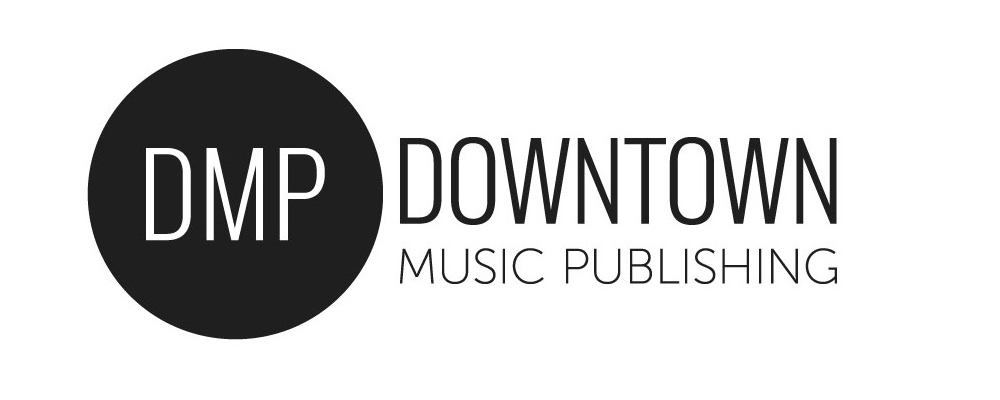
Downtown Music Publishing yesterday announced a new worldwide administration deal with the estate of artist, actor and songwriter Anthony Newley.
The US-based publisher says the deal covers “several notable works” from Newley’s catalogue of songs and compositions, including the original score for the 1971 film ‘Willy Wonka And The Chocolate Factory’.
Confirming the deal, Downtown’s Exec VP Creative Services, Jedd Katrancha, said: “Newley was able to write songs that perfectly married grounded human sentiment with whimsical other-worldly flourishes, and we’re honoured to look after his beautiful catalogue of works. Furthermore, in his family we have found engaged and creative partners and together we look forward to sharing these songs that have meant so much to so many people”.
Speaking for the estate, Newley’s daughter Tara Newley said: “The entire family and I are very excited to partner with a forward-thinking publisher like Downtown. From our initial meeting with Downtown, we felt confident that we had found a caring and creative home for our father’s songs”.
READ MORE ABOUT: Anthony Newley | Downtown Music
Wednesday 28 June 2017, 10:08 | By Andy Malt
Attitude Is Everything wins increased Arts Council funding
Business News Live Business

Music charity Attitude Is Everything has been awarded £998,000 from Arts Council England over the next four years.
The 20% increase in funding has been awarded in order for the organisation to create a new development programme for deaf and disabled artists and promoters. That programme is due to kick off in April next year. In addition to this, the charity will continue to provide resources, training and consultancy to the live music industry for improving access for deaf and disabled music fans.
“In these times of increasing competition for funding in arts and culture, I am delighted that the Arts Council England has recognised the importance of our influence in improving access to the live music over the past seventeen years”, says Attitude Is Everything CEO Suzanne Bull. “Their commitment ensures that we can further raise our profile; ensuring that we can support even more music venues, festivals and events to meet the requirements of disabled and deaf people”.
“I am also excited that we can now support disabled artists and promoters to develop under our new development programme”, she continues. “I look forward to sharing our new strategic plan in the future and supporting Arts Council England to deliver their vision of great art and culture for everyone”.
READ MORE ABOUT: Attitude Is Everything
Wednesday 28 June 2017, 10:07 | By Chris Cooke
CMU@TGE 2017: Where’s My Fucking Money? The Transparency Problem
Business News Digital Industry People Labels & Publishers The Great Escape 2017
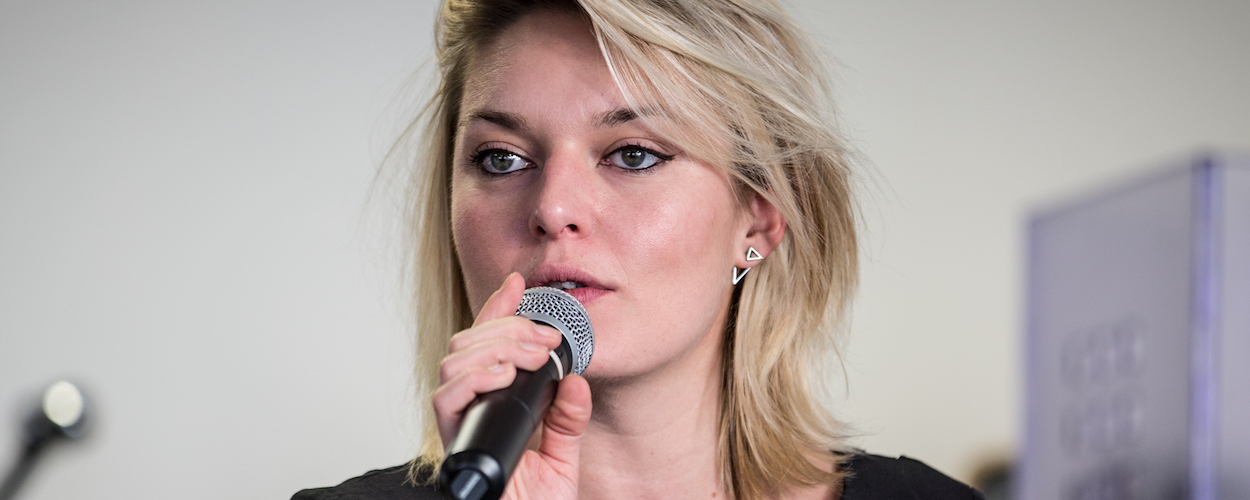
We still have more reports to come on key sessions that took place at the CMU Insights conferences at The Great Escape last month. Today, the big transparency debate that took place as part of The Royalties Conference.
The need for more transparency in the streaming business has been a hot topic at music conferences for a few years now. Labels, distributors, publishers and collecting societies initially agreed that there needed to be more transparency for artists, songwriters and their managers, and then started insisting that they were now becoming more transparent. Which in some ways some are, though – from an artist perspective – there is still much more to be done.
As was discussed at the CMU Insights Royalties Conference by artists Dave Rowntree, Crispin Hunt and Suzanne Combo (pictured), respectively representing the UK’s Featured Artist Coalition, the British Academy Of Songwriters Composes & Authors and the International Artists Organisation. Annabella Coldrick from the Music Managers Forum provided a management perspective.
‘Transparency’ is a wide-ranging term, which can in itself be a problem. Tackling issues around transparency requires music creatives and their managers to be much more specific about what streaming information they feel they need and should have access to. At a basic level, it’s useful to distinguish between usage data, royalty data and deal information.
It’s usage data where most progress has been made to date, by both majors and independents. Hunt noted that he had explored the portals both Sony Music and Universal Music have developed to share usage stats from the streaming platforms with their artists, and that they both provide “a great deal of really useful information”, particularly when it comes to geographical data – where people are streaming your music – which can inform an artist’s live activity.
But even with usage data, it is still early days. Advances are being made all the time in this domain, Hunt accepted, “but I think there’s a lot more that could be done with this kind of data and how it is passed through to artists”.
The panel agreed that the digital platforms themselves had an important role to play here as well, in that they needed to further refine what data they provide to the labels, distributors, publishers and societies. And then the music companies need to further refine how they compile that data and share it with their artists and writers.
“We know Spotify provides a lot of good data”, Coldrick said, noting that it also provided artists and managers with some of that information direct via its Spotify For Artists platform. “I think Apple Music provides quite a bit of usage data too, but not necessarily so much detail, to the same level of granularity. With some of the other digital services, the data coming through is even more difficult to analyse”.
Of course both labels and artists want access to the best possible data from the digital platforms – which is to say enough detail to be able to see trends and inform marketing and business decisions, but not so much detail it’s impossible to navigate. So, where the weaknesses are actually with the platforms, if labels and artists could agree on how they would like to see usage data provision evolve, they could together put pressure on the streaming services to improve things their side.
Artist and managers could also put pressure on the streaming platforms to develop services akin to Spotify For Artists, so that they aren’t reliant on their labels and distributors to pass the data through. Though, at the same time, it’s useful to be able to see data from all the digital platforms side by side, which is where the good label and distributor data portals come into their own.
However, most managers will inevitably have artists working with different labels and distributors, meaning they are having to use multiple portals, in addition to any of the data channels provided by the streaming services themselves. And one of the problems is that there are no real data standards yet.
“The general problem here is that this is the Wild West at the moment”, reckoned Rowntree. “We’re in the very early days of all of this and so everybody is reporting different things in different ways. There’s no standardisation. It’s very hard to create useful tools without standards that are going to work on platforms across the board”.
“That will happen”, he added. “History shows us that the individual organisations will resist standards tooth and nail because they have a better idea, but it will be forced on everybody sooner or later”. Though, stressing once again that it was still early days for the streaming business, he reckoned that could be a decade away.
While Rowntree agreed that the way labels and distributors are presenting usage data is improving, he felt that some business partners are still holding some key data back. But not necessarily because ‘data is power’, possibly more for paternal reasons.
“You have an ongoing tug of war”, he said. “From artists and managers saying ‘it’s our data as much as it’s yours, tell us’, and the business partners going ‘no, I must protect you from all of this data; you won’t be able to understand it; you’ll be deluged’. But they forget, with the younger artists and managers, they’re 20 years old and know exactly how to deal with large amounts of data, and they are kind of laughing at this idea that they need to be protected from it”.
Nevertheless, with usage data there does seem to be a general willingness among labels, distributors, publishers and societies to share the information with their artists and songwriters. The question is whether they are able to share that data in a thorough but usable way.
Which comes down to what the streaming services are doing, what resources the business partners have to build their own portals, and the need for some standards across the industry. Though artists could and should be involved more in these conversations, rather than just suddenly being presented with a finished portal.
But while usage data is great, what about the money? What about royalty reporting? Again, portals are being built and some progress is being made, though standards vary hugely across the industry, and even the best could be better.
Says Combo: “Often you are told what you have earned from a service, but you don’t see the basis of the label’s calculation. You have no idea if any deductions have been applied, and if so, why they have been applied. You need to see everything that has happened at the label to the money it was paid by the streaming service”.
The complexities of record contracts – and especially older record contracts – make royalty reporting more confusing. If an artist is on a straight 18% royalty, then the label’s financial reporting portal could simply state what it received from a streaming service in one column, and then what the artist is receiving – ie 18% of the original figure – in the next column. And some labels do just that.
However, with some record contracts, and especially older record contracts, there are other complications which aren’t always clearly set out in royalty statements. Hunt explained: “I signed a deal in the 1990s. It was quite a good deal for the time, paying a 17% royalty. But then there are deductions. There is a TV advertising deduction, which can be applied forever because we were once briefly advertised on the television. That takes my royalty down to 8.5%”.
“Then there’s an international deduction. It’s not clear how that applies on streaming. But there’s a rumour that it applies because the servers of Spotify are based in Sweden. I’ve asked my label about that and they say ‘oh, we’ll have to have a look into that’. There was also a 25% packaging deduction in the contract. Does that apply? I worked out that, with all the deductions, in the end I’d be on about a 1.7% royalty. Which is only 0.7% better than Elvis Presley and Colonel Tom Parker”.
“In their defence, the record company has said ‘no no no, we don’t apply those kind of deductions to even legacy contracts on digital'”, Hunt went on. “But it’s really hard to find out exactly what’s going on, because it’s not clearly shown in the royalty reporting”. Which is to say, the label isn’t showing all of its workings out.
Though even where business partners are clearer on how they have worked out what an artist is due – or an artist has a simpler contract where the headline royalty is always applied – there remains the third transparency issue: artists don’t know how the streaming services worked out what to pay the label, distributor, publisher or society, because they don’t know the revenue share and minimum guarantee arrangements between their business partners and the streaming firms. Nor if the label is seeing any other kickbacks like equity, advances, fees or marketing support.
“If somebody is profiting off the exploitation of my music, it seems to me equitable and just that I should share in that”, stated Rowntree. “That’s a fundamental red line for me. If somebody’s being offered equity in exchange for my music being licensed to their service, I want my share of that. And if somebody’s being paid an advance on the royalties that are due to me, I want my share of that advance”.
The labels, distributors, publishers and societies often claim that they can’t share deal information with artists and songwriters because of non-disclosure agreements in their contracts with the streaming services. Rowntree: “It just seems to me that this idea that all this information is hidden behind NDAs, which I’m not allowed to penetrate, is deliberately obstructing my ability to check that what I’m being paid is correct. I don’t see that there’s any other industry on earth that would put up with this”.
One justification for the NDAs is that if the rates received by the labels et al were public domain, it would limit the ability of an artist’s business partners to get the best possible deal. Hunt conceded that this was a valid point, citing the example of two PRS streaming deals he had knowledge of as a board member of the society.
Still, the industry needs to bring artists and songwriters into the NDAs, Hunt added. “We’ve got to work out some way that the artists – or the people who have an interest in their work – can have some kind of penetration into the streaming deals; but we might have to sign NDAs at the same time. There has to be some way of doing that”.
Combo agreed: “We need to know that we are part of the investment. We deserve better treatment and better confidence from the labels, and from the collecting societies. We need to reconsider our relationships – we, the artists, are business partners of the music companies. And we are able to keep secrets if necessary”.
“These structures are already in place”, Rowntree reckoned. “When you send a representative into audit your major label company – to audit the royalties you have been paid – they already sign an NDA, so this already happens. These people should be able to then see and check the streaming deals. I don’t actually want to know the percentages, I don’t want the data myself. I just want to be satisfied that the accountancy firm that works for me is happy that things are going OK”.
Though Coldrick expressed one concern with artists – or auditors working for artists – signing NDAs with the labels. It’s usually bigger name artists who can afford to audit their business partners. If they find a problem with the streaming royalties they are receiving, the label often does a deal with the artist on the condition they don’t speak about the issue publicly. But the issue might be affecting all artists.
Coldrick: “If what you find is a big structural problem at the label, how do we fix that problem? Because what they’ll do, is they’ll do a deal with you, you’ll get paid, then you’re quiet. But what if the problem is affecting every single other artist on that label – the problem is, you don’t know. If you can’t expose or share those problems with the wider artist community, then you can’t fix the long term structural problems”.
While with usage data, there seems to be a general willingness across the industry to share information – the issues are ability, resource and standards – with royalty data and deal information it’s less clear cut. On the latter point, the majors in particular remain resistant to becoming truly transparent. So much so that the MMF, FAC and BASCA – along with the Musicians’ Union and Music Producers Guild – earlier this year called on the government to intervene.
“I don’t think anyone initially wants to leap to politicians to find a solution”, Coldrick stated. “Often that’s the very last resort, having to go into Parliament and say ‘actually there’s a really big problem here, it’s structural’. But we’ve tried, all our industry organisations have spent at least a year and a half – nearly two years – trying to negotiate a voluntary code of conduct by which all these issues would be resolved”.
“If you’re trading in an artist’s catalogue then you should have to be open and transparent about how you’re trading”, she went on. “You shouldn’t do deals that are against the interests of those that are creating the music that you’re exploiting. After a year and a half, we haven’t been able to find a voluntary solution to these issues that every label and publisher can sign up to, which is why we reached out to government”.
Hunt added: “There’s a big conversation that goes on within the music industry about ‘oh we don’t want interference, we don’t want regulatory interference with contracts between individuals’. But the truth of this is that it’s not contracts between individuals, it’s often a contract between four or five nineteen year old kids and a huge global corporation, and they can only rely on their lawyer, who has to do loads of deals with Universal. That’s not a contract between individuals”.
“We should not forget, and neither should the copyright industries forget, that copyright is itself a regulation”, Hunt went on. “Intellectual property is a regulation and it requires government to keep an eye on it. It’s a government’s duty to keep an eye on their regulations and how their regulations are employed. I think it’s utterly necessary for government to step in”.
This has already happened in France. Combo, who is also involved in the French version of the FAC, explained that a French government review of copyright law put the idea of a compulsory licence for streaming on the table, which could in turn secure artists both transparency and a better split.
A compulsory licence is the last thing labels and publishers want. “That’s why we succeeded in getting every stakeholder around the table to negotiate a voluntary code of practice”, Combo said. “Without this legal threat, it would have been impossible. We then negotiated long and hard, and signed a code two years ago”.
Many would argue that a compulsory licence would ultimately push the royalties paid by streaming services down, which isn’t in the interests of artists either, though the prospect of such an arrangement got talks going on a more proactive basis. Work relating to that code – on transparency and remuneration – is still very much ongoing, so in practical terms it is still to be seen if the French scheme delivers the goods.
Beyond the UK and France, transparency is also on the agenda in the wider European Union, with an article of the draft European Copyright Directive attempting to provide artists and songwriters with new rights to find out how their music is being exploited. It’s a good start, though Coldrick expressed concerns that the current draft provides too many get outs. And, of course, in the UK it’s still not clear whether the new European Copyright Directive will be implemented here.
Plus, Coldrick said, better transparency is just step one. “It would be great if we could get some decent transparency, but what if – as a result of that – an artist finds out they are being ripped off. Or – more importantly – they aren’t technically being ripped off, legally speaking, but they are being paid on very unfair terms, maybe with deductions from the physical era still being applied to streams. It’s all very well being able to see that better, but it’s then what can you actually do about it?”
The aforementioned copyright directive tries to deal with that too via a thing called the ‘contract adjustment mechanism’. Coldrick said: “Again, we don’t think the EU contract adjustment mechanism does what we would like it to do, but we would like to see some way to have the right for artists to review their old deals – to say are these terms modern and fair? So if those deductions are being applied, there’s a formal system to say ‘hang on a minute, this is outdated, it’s not right’, and to fix it”.
Check out all the reports and resources CMU has published around this year’s CMU Insights @ The Great Escape conferences here.
READ MORE ABOUT: Annabella Coldrick | Crispin Hunt | Dave Rowntree | Suzanne Combo | The Great Escape
Wednesday 28 June 2017, 10:03 | By Andy Malt
Mariah Carey quizzed on political corruption in Israel
Artist News Brands & Merch

It’s not uncommon for trips made by musicians to Israel to be controversial. However, Mariah Carey’s journey to Tel Aviv this week to launch a face cream has been a little different. Interviews have quickly turned to the whereabouts of her former fiancé James Packer, who is wanted for questioning by police in the country. And she’s quite annoyed about it.
Israeli police are investigating accusations of corruption against Israel’s Prime Minister, Benjamin Netanyahu. Among a number of allegations, it is claimed that he received expensive gifts from various business people, despite rules banning elected officials from accepting such things, one of whom is Packer.
A number of people have already been questioned in the investigation, but police want to speak to the Australian media mogul in particular because he is a close friend of Netanyahu. When he and then partner Carey visited Israel in 2015, they dined privately with the Prime Minister and his wife, Sara.
The investigation was sparked by a report by Israel’s Channel 10 last year, in which it was specifically claimed that Packer had paid for Netanyahu’s son Yair to go on several luxury holidays, and leant him his private jet to travel to them. It’s also claimed that Packer gave Sara Netanyahu and the head of Israeli intelligence agency Mossad, Yossi Cohen, free tickets to see Carey perform live in August 2015.
Carey and Packer ended their relationship in October last year, and she has now returned to the country alone to promote her new partnership with skincare brand Premier Dead Sea Cosmetics. Although she quickly lost her grasp on that as the focus.
Asked at a press conference about the potential controversy of doing business in Israel, she said she was unconcerned, according to The Times Of Israel: “I’m not a political person. I don’t care what other people say about different political things that don’t pertain to my life. I don’t think it’s my place to act like a political figure. That’s not who I am”.
Asked then about the significance of her dinner with the Netanyahus, she replied: “What, I can’t eat anymore?”
Carey brushing off any suggestion that she might have political opinions did not deter other journalists though, as questions turned specifically to Packer. In an interview for Israel’s Channel 2 News, she was asked directly about her ex’s whereabouts.
“I don’t know where the motherfucker is”, she responded. “How am I supposed to know? I don’t know, for real. I really have no idea about the political stuff that goes on, I don’t pay attention to it”.
The singer’s media tour went downhill from there. An interview on TV show ‘Erev Tov’ was shut down by her PR team after Packer was again raised. Although not before Carey had said: “Oh, now they want to blame me? Someone wants to blame me for something now? What did I do? I didn’t do anything”.
A further public engagement last night was cancelled, and Carey is now reportedly cutting her planned week-long trip short – returning to the US as soon as all contractual obligations are fulfilled, including a photocall at the Dead Sea with her twin sons.
The latest reports suggest Packer has now agreed to be interviewed by Israeli police. So perhaps Carey will stop being dogged by questions about him if she does stay in the country.
READ MORE ABOUT: Mariah Carey




